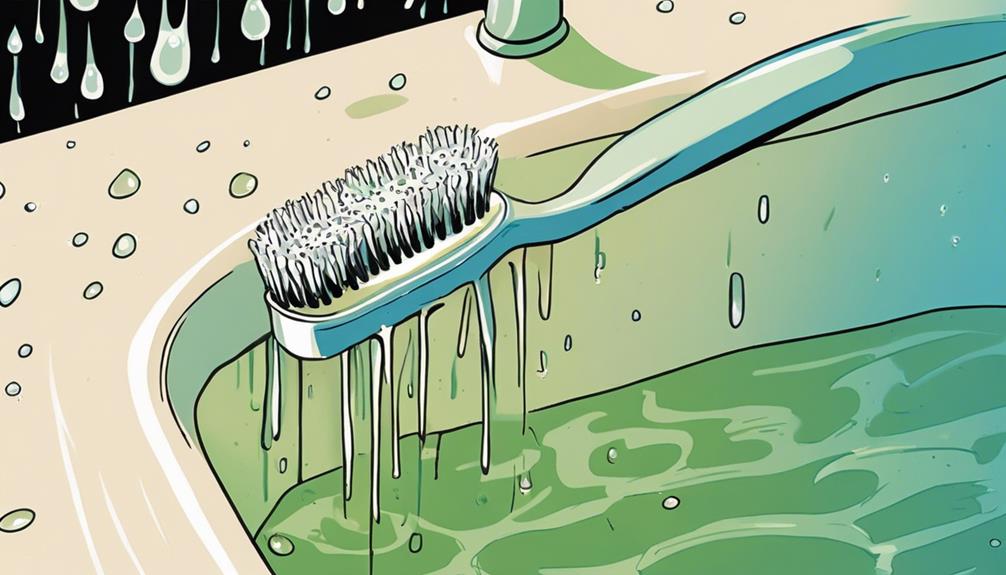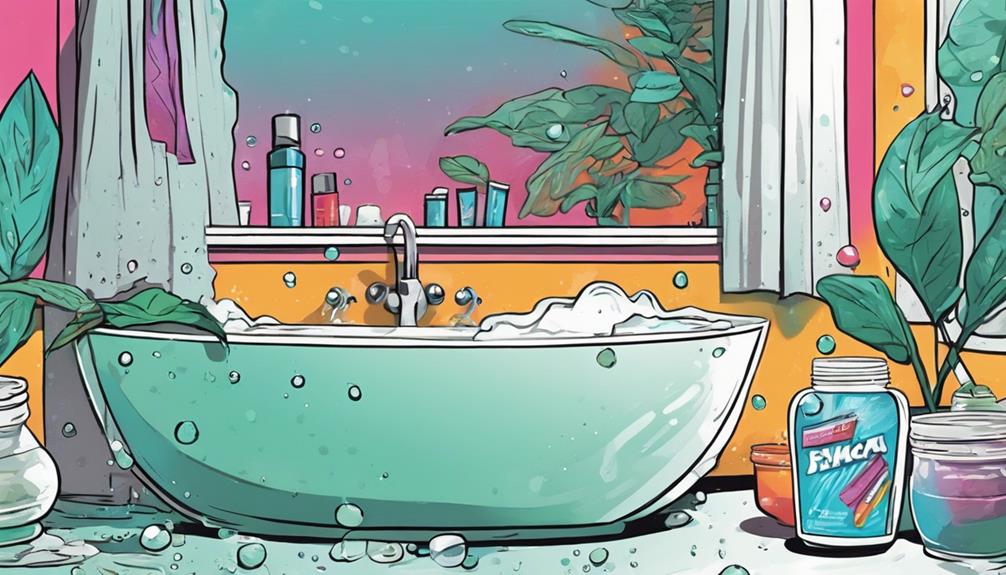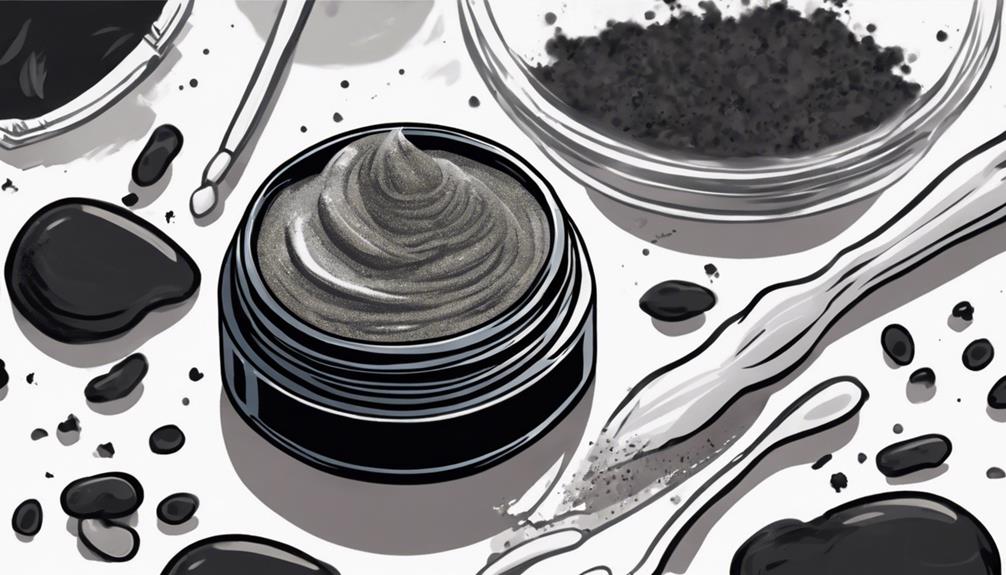You might be surprised to know that some snacks can harm your child's teeth considerably. Citrus fruits and dried fruits are acidic and sticky, which can damage enamel and promote cavities. Sports drinks and sugary snacks, like gummy treats and hard candy, are loaded with sugar, increasing decay risk. Even starchy foods, such as chips and pretzels, break down into sugars that fuel harmful bacteria. Carbonated drinks pose similar threats due to their sugar and acid content. If you want to protect your child's smile, it is crucial to choose healthier alternatives and be mindful of snack choices. There's more to uncover about dental health and snacks!
Key Takeaways
- High-sugar snacks like gummy treats and hard candies cling to teeth, significantly increasing the risk of tooth decay.
- Sticky dried fruits can adhere to teeth, allowing harmful bacteria to thrive and leading to cavities.
- Citrus fruits are acidic and can erode tooth enamel, causing increased sensitivity and decay risk with frequent consumption.
- Sports drinks and carbonated beverages are high in sugar and acidity, which can weaken enamel and promote cavities.
Citrus Fruits

Citrus fruits, packed with vibrant flavors and nutrients, can pose a hidden threat to your child's dental health due to their high citric acid content.
While these fruits are rich in vitamin C and antioxidants, their acidic nature can damage teeth over time. When your child frequently consumes citrus fruits or drinks concentrated juices, the citric acid can wear down tooth enamel, leading to increased sensitivity and a higher risk of decay.
To protect your child's teeth, consider moderating their intake of citrus fruits. You can also pair them with other foods, like cheese or nuts, to help reduce direct contact with the teeth. This combination creates a barrier that lowers the risk of enamel erosion.
After enjoying citrus, encourage your child to rinse their mouth with water. This simple step can help neutralize the acids and safeguard their dental health.
Dried Fruits

While dried fruits might seem like a healthy snack option, their sticky texture and high sugar content can considerably harm your child's dental health.
Dried fruit can easily adhere to teeth, increasing the risk of cavities as it clings to tooth enamel. The concentration of sugar in these snacks is comparable to candy, making them a significant contributor to tooth decay.
When your child munches on dried fruits, the residue can be tough to remove with regular brushing. This allows harmful bacteria to thrive, leading to further dental issues. It's essential to encourage your child to rinse their mouth with water after enjoying dried fruit to help wash away any lingering sugars and reduce the risk of decay.
Instead of reaching for dried fruits, consider fresh fruit alternatives that pose a lower risk to dental health. Fresh fruits typically have a higher water content, which helps wash away sugars more easily and minimizes the chance of sticking to teeth.
Sports Drinks

Sports drinks, often packed with high sugar levels and acids, can wreak havoc on your child's dental health.
These beverages can contain sugar levels comparable to soda, which greatly contributes to tooth decay. The high acidity in sports drinks not only erodes tooth enamel but also increases the risk of dental sensitivity and cavities over time.
Most children don't need sports drinks for hydration during physical activities; water is typically sufficient. By encouraging your child to stick with water or low-sugar alternatives, you can help protect their teeth.
The sugars found in sports drinks promote plaque buildup on teeth, leading to harmful bacteria that produce acids detrimental to oral health. Regular consumption of these drinks can lead to a cycle of tooth decay that's hard to break.
It's crucial to limit your child's intake of sports drinks and educate them about the potential harm they pose. Taking these steps can greatly enhance your child's dental health and guarantee their smile stays bright and healthy.
Acidic Snacks

Acidic snacks, like tomatoes and citrus fruits, can seriously damage your child's tooth enamel if consumed too often. The citric acid found in these fruits can wear down enamel over time, increasing the risk of dental decay and sensitivity.
If your child enjoys these acidic snacks, it's crucial to emphasize moderation. Frequent consumption without proper oral hygiene can lead to significant damage to their teeth.
To protect their enamel, encourage your child to rinse their mouth with water after eating acidic foods. This simple step can help neutralize the acids and shield their teeth from harm.
Additionally, pairing acidic snacks with less acidic foods can mitigate their detrimental effects. For example, serving citrus fruits alongside cheese or whole-grain crackers can balance the meal and reduce the risk of enamel erosion.
Sugary Combinations

Sugary combinations, like PB&J sandwiches and sugary snacks, can create a perfect storm for your child's dental health by trapping sugars and promoting harmful bacteria in their mouth. When you serve PB&J, the sticky peanut butter and sugary jelly combine to cling to teeth, making it easy for bacteria to thrive and lead to tooth decay.
Fruit juices, often perceived as healthy, frequently contain added sugars that can be worse for oral health than whole fruits. Limiting these can help reduce cavity risks. Dried fruits, while nutritious, are sticky and sugary, creating an environment ripe for plaque buildup.
Snacks that mix sugars and starches—think cookies or pastries—also play a significant role in dental issues. Their combination of stickiness and sugar allows bacteria to flourish, exacerbating the risk of cavities.
Frequent consumption of these sugary combinations increases acid production in the mouth, eroding tooth enamel and leading to sensitivity and decay. By being mindful of what your child eats, you can help protect their smile and promote better oral health.
Sugary Snacks

Indulging in sugary snacks, like gummy bears and lollipops, can greatly harm your child's dental health by feeding harmful bacteria and promoting tooth decay. These treats are often high in sugar content, which means every time your child indulges, those bacteria get a feast.
Sticky candies, in particular, cling to teeth, making them hard to remove during brushing. This increases the risk of cavities and can lead to painful dental issues. When children frequently consume sugary snacks, acid production by bacteria ramps up, and this acid can erode tooth enamel over time. If your child has a diet loaded with these snacks, they're at a much greater risk for dental problems compared to those who limit their intake.
To combat this, consider encouraging healthier alternatives. Fruits, nuts, and even yogurt can satisfy your child's sweet tooth without the damaging effects of sugary snacks.
Carbonated Drinks

Carbonated drinks are loaded with sugar and acid, both of which can wreak havoc on your child's teeth.
You may not realize it, but these beverages can erode enamel and lead to serious dental issues over time.
Sugar and Acid Impact
Consuming soft drinks can greatly harm your child's teeth due to their high sugar content and acidic nature. Many carbonated drinks contain up to 40 grams of sugar per 12 ounces, which is a significant amount that can lead to cavities. When sugar is bad for your child's dental health, it creates an environment where harmful bacteria thrive, increasing the risk of tooth decay.
In addition to sugar, the acidity of these drinks is a major concern. Soft drinks often have a pH level between 2.5 and 3.5, making them more acidic than vinegar. This high acidity can weaken enamel, the protective layer of teeth, making them more susceptible to damage. Regularly consuming these beverages can result in a 20% higher risk of cavities in children compared to those who avoid them.
Even diet sodas, which may seem like a better option, can still pose a threat due to their acidity, leading to tooth sensitivity over time.
To promote healthy teeth, encourage your child to drink water or milk instead of sugary and acidic drinks, helping to safeguard their dental health for years to come.
Enamel Erosion Risks
The high sugar and acid content in soft drinks can lead to significant enamel erosion, putting your child's dental health at risk. When your child drinks sugary drinks, the acidity lowers the pH levels in their mouth, creating an environment that harms tooth enamel. Over time, this erosion increases the likelihood of cavities, making it vital to monitor their intake.
Studies show that regular consumption of carbonated beverages can result in a noticeable loss of enamel thickness. This erosion not only contributes to more serious dental issues but can also lead to increased tooth sensitivity. It's essential to recognize that even diet sodas pose risks due to their acidic nature, which can still damage enamel despite having no sugar.
If you want to protect your child's teeth, it's wise to limit their intake of these sugary drinks. Encourage healthier options like water or milk, which are much better for their dental health. Making these simple changes can help prevent enamel erosion and guarantee your child's smile stays bright and healthy for years to come.
Healthier Beverage Alternatives
When looking for healthier beverage alternatives, choosing options like water or low-fat milk can greatly benefit your child's dental health.
Carbonated drinks, including soda, are often loaded with sugar and acid, leading to tooth decay and enamel erosion. Even diet sodas, while they might seem better, still contain acids that can harm your child's teeth and contribute to sensitivity.
To promote better habits, it's crucial to limit your kids' consumption of these carbonated options. Instead, encourage them to opt for healthy drinks like water, which helps rinse away sugars and acids, protecting their teeth.
Low-fat milk is another excellent choice, as it hydrates while providing calcium and phosphorus necessary for strong teeth.
Starchy Foods

Starchy snacks like chips and pretzels can wreak havoc on your child's teeth by breaking down into sugars that fuel harmful bacteria. When your child munches on these starchy foods, they don't just enjoy a tasty treat; they also set the stage for tooth decay. The texture of these snacks often allows them to get lodged between teeth, leading to prolonged sugar exposure. This increases the risk of cavities, as plaque bacteria thrive on these sugars.
Moreover, foods like white bread and crackers convert quickly to sugar, exacerbating the potential for dental issues when consumed frequently. If these starchy snacks aren't cleaned out from between teeth, they leave behind a sticky residue that contributes to plaque buildup, making dental hygiene even more critical.
To protect your child's dental health, encourage regular brushing and flossing after indulging in starchy snacks. This simple routine can greatly reduce the risk of cavities and keep plaque bacteria in check.
Hard Candy

Hard candy poses significant risks to your child's dental health, thanks to its high sugar content and potential to chip or crack teeth. The sugar in hard candy feeds harmful bacteria, leading to tooth decay. When your child bites down on hard candy, there's a real risk of damaging their teeth, resulting in painful emergencies. Furthermore, hard candy often stays in the mouth for extended periods, prolonging sugar exposure and allowing bacteria to produce acids that erode tooth enamel.
To help you understand the risks better, here's a quick overview:
| Risk Factor | Impact on Dental Health |
|---|---|
| High Sugar Content | Promotes tooth decay |
| Long Exposure Time | Erodes tooth enamel |
| Biting Risks | Can chip or crack teeth |
| Frequent Consumption | Cumulative effect on dental health |
Regular brushing and good dental hygiene after consuming hard candy are essential to mitigate the risks of cavities and enamel erosion. Ultimately, hard candy is bad for children's teeth, so consider healthier snack options to protect their smiles.
Gummy Treats

Gummy treats may seem like a fun snack, but their high sugar content and sticky texture can wreak havoc on your child's teeth.
These candies cling to enamel, making it tough for brushing to do its job and increasing the risk of cavities.
It's important to contemplate healthier alternatives to keep those smiles bright and cavity-free.
Sugar Content Concerns
When kids indulge in gummy treats, the high sugar content can lead to serious tooth decay as the bacteria in their mouths feast on the lingering sugars. Gummy bears and fruit snacks, while often marketed as fun and fruity, are packed with sugar that sticks to teeth. This sugary residue creates a perfect environment for harmful bacteria to thrive, increasing the risk of cavities.
Every time your child munches on these chewy candies, they're not just enjoying a tasty snack; they're also prolonging their teeth's exposure to sugar. Unlike hard candies that dissolve quickly, gummy treats tend to break down slowly, keeping sugar close to the tooth surfaces for longer periods. The longer the sugar lingers, the more acid bacteria produce, escalating the potential for dental issues.
Regular consumption of these treats can greatly boost the likelihood of tooth decay, so it's essential to monitor your child's intake. Opting for healthier snacks and encouraging good oral hygiene can help mitigate the risks associated with high sugar content in gummy treats.
Stickiness and Cavities
Sticky textures in gummy treats make it easy for them to cling to teeth, creating a perfect environment for cavity-causing bacteria to thrive. These gummy snacks, loaded with sugar, can markedly increase the risk of tooth decay in your child. When these sticky treats get trapped between teeth, they prolong sugar exposure and allow harmful acids to form.
Here are three reasons to be cautious about gummy treats:
- Extended Sugar Exposure: Unlike hard candies that get consumed quickly, gummy treats linger in the mouth, increasing the time sugars are in contact with teeth.
- Plaque Buildup: The sticky nature of these candies makes it tough to remove residual sugars, leading to plaque accumulation and higher cavity risk.
- Frequent Consumption: Regularly allowing your child to enjoy gummy snacks can create a breeding ground for bacteria, further elevating the chances of tooth decay.
To combat these issues, encourage regular brushing and flossing after consuming gummy treats. Maintaining good oral hygiene is essential to preventing the sticky trap of sugary snacks from wreaking havoc on your child's dental health.
Alternatives to Gummy Treats
To keep your child's teeth healthy, consider swapping gummy treats for nutritious alternatives that are both tasty and tooth-friendly. Gummy candies are often high in sugar and can cling to teeth, increasing the risk of tooth decay. Instead, try offering crunchy fruits like apples and carrots. These healthy snacks not only help clean teeth but also stimulate saliva production, which protects against cavities.
Yogurt and cheese make excellent substitutes as well. They provide essential calcium and phosphorus, which strengthen tooth enamel without the sugary drawbacks of gummy treats. Plus, kids usually enjoy the creamy texture of yogurt or the taste of cheese, making them appealing options.
Nut-based snacks are another fantastic alternative. They deliver beneficial nutrients while being less likely to stick to teeth compared to gummy candies. You can even mix nuts with dried fruits (in moderation) for a tasty and nutritious trail mix.
Frequently Asked Questions
What Foods Are Bad for Kids Teeth?
When considering foods that harm kids' teeth, think about sugary snacks, sticky dried fruits, and acidic drinks. These can contribute to cavities and enamel erosion, so it's best to limit their intake for better dental health.
What Substances Destroy Children's Teeth?
When it comes to children's dental health, you've got to mind your p's and q's. Sugary snacks, acidic drinks, and sticky foods can all wreak havoc, leading to cavities and long-term tooth damage.
What Is the Most Damaging Food for Your Teeth?
The most damaging food for your teeth is sugary and acidic snacks. They promote bacterial growth and acid production, leading to enamel erosion and cavities. So, watch what you consume to protect your dental health.
What Are the Best Snacks for Kids to Prevent Cavities?
Imagine a fortress for your child's teeth; munch on crunchy apples, carrots, and nuts. Pair those with dairy delights like yogurt and cheese, and watch their smiles shine bright while cavities stay at bay!
Can Chewing Gum Actually Help Prevent Tooth Decay in Children?
Many parents may be surprised to learn about the surprising benefits of chewing gum in preventing tooth decay in children. Chewing sugar-free gum can help stimulate saliva production, which in turn helps neutralize acids in the mouth and reduce plaque buildup. This can contribute to better oral health for kids.
Conclusion
Taking care of your child's teeth is essential, and avoiding these damaging snacks can make a big difference. Sugary treats like candy and cookies can lead to tooth decay and cavities, so it’s best to limit their consumption. Additionally, starchy snacks like potato chips and pretzels can also be harmful to your child’s teeth, as they can get stuck in between their teeth and contribute to plaque buildup. To promote good oral health, it’s important to encourage your child to eat a balanced diet and limit their intake of foods that harm teeth.
Remember, 'an ounce of prevention is worth a pound of cure.' By being mindful of what they eat, you can help protect their smiles for years to come.
Opt for healthier alternatives and teach them the importance of good oral hygiene.
Together, you can keep their teeth strong and shining bright!









